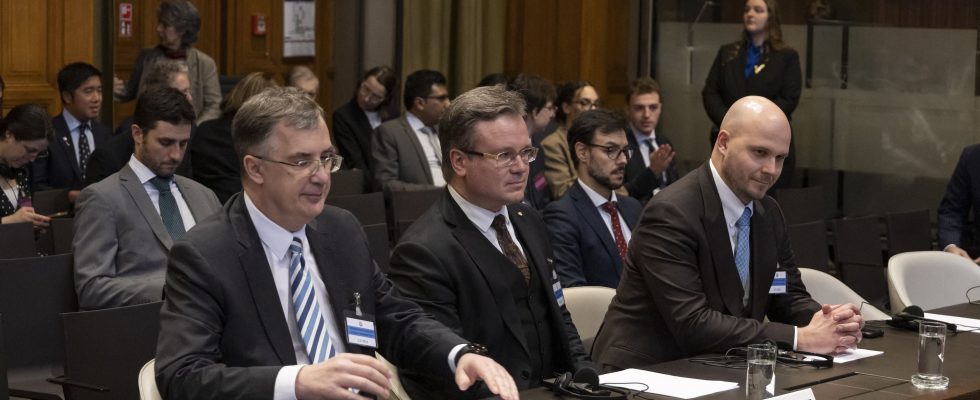This decision will surely have no short-term impact on the continuation of the conflict in Ukraine. But it remains a strong symbolic victory for kyiv, and which could perhaps be important for a possible post-Putin era and an end to the war. The International Court of Justice (ICJ), the UN’s highest court, declared on Friday February 2 that it had jurisdiction to rule on most aspects of a case brought by Ukraine concerning the Russian invasion launched in 2022, with Kiev demanding repairs.
These proceedings against Russia before the International Court of Justice were initiated by Ukraine only a few days after the start of the Russian invasion. It then started from the words used by Vladimir Putin when launching the military operation on February 24, 2022, which the Russian president had then partly justified by accusations of a “genocide” orchestrated by Kiev in the Russian-speaking east of the country. ‘Ukraine. kyiv then took the matter to the ICJ, categorically denying this claim and arguing that Russia’s use of this reason contravened the 1948 United Nations Genocide Convention.
A mixed “victory”
In a preliminary decision rendered in March 2022, the ICJ then sided with Ukraine, and called on Russia to immediately end its invasion. But Russia opposed the ruling, saying the ICJ, which decides disputes between states, had no legitimacy to judge the case. Ultimately, the ICJ rejected Moscow’s argument this Friday, affirming that it had jurisdiction to rule on this question.
However, this decision is not as decisive as kyiv wanted. Notably because it does not rule on another request from Ukraine, perhaps even more important: the fact that the Russian invasion itself constituted a violation of the Genocide Convention. On this part of the case, the ICJ said it did not have jurisdiction to rule, just as it said it did not have the power to rule on another point raised by Ukraine: that Moscow’s recognition of the separatist regions of Lugansk and Donetsk violated the convention.
Still, Ukraine’s lead lawyer, Anton Korynevych, said the ICJ ruling was a “victory” for his country, as the Hague court will now consider the case on its merits. “It is important that the court decides on the question that Ukraine is not responsible for an alleged genocide since 2014 in Donbass, as the Russian Federation falsely claims,” he told journalists .
A second judgment in three days on the war between Ukraine and Russia
Judgments of the ICJ are binding and cannot be appealed. However, it does not have the means to enforce its decisions. The court noted that it had previously called on Russia to “immediately suspend” its military operations but that “the armed conflict continues to this day.” “Every day of Russia’s brutal war in Ukraine constitutes a violation” of that ICJ order, which remains valid as long as the case continues, said Ukraine’s lawyer Anton Korynevych. More than 30 other countries, all Western allies of Ukraine, also supported kyiv in this procedure.
This is the second decision made by the ICJ this week regarding the conflict between Russia and Ukraine. On Wednesday, the court ruled in a separate case filed by Ukraine that Russia financially supported separatist rebels in eastern Ukraine for years before the invasion. The court then rejected most of Ukraine’s requests, but nevertheless found that Moscow had failed to investigate possible violations of the international convention on the financing of terrorism.
The ICJ has been at the center of attention in recent days. Last week, on a high-profile case about the Gaza war, she called on Israel to take all necessary measures to prevent possible genocide during its military operations in response to the October 7 Hamas terrorist attack .
